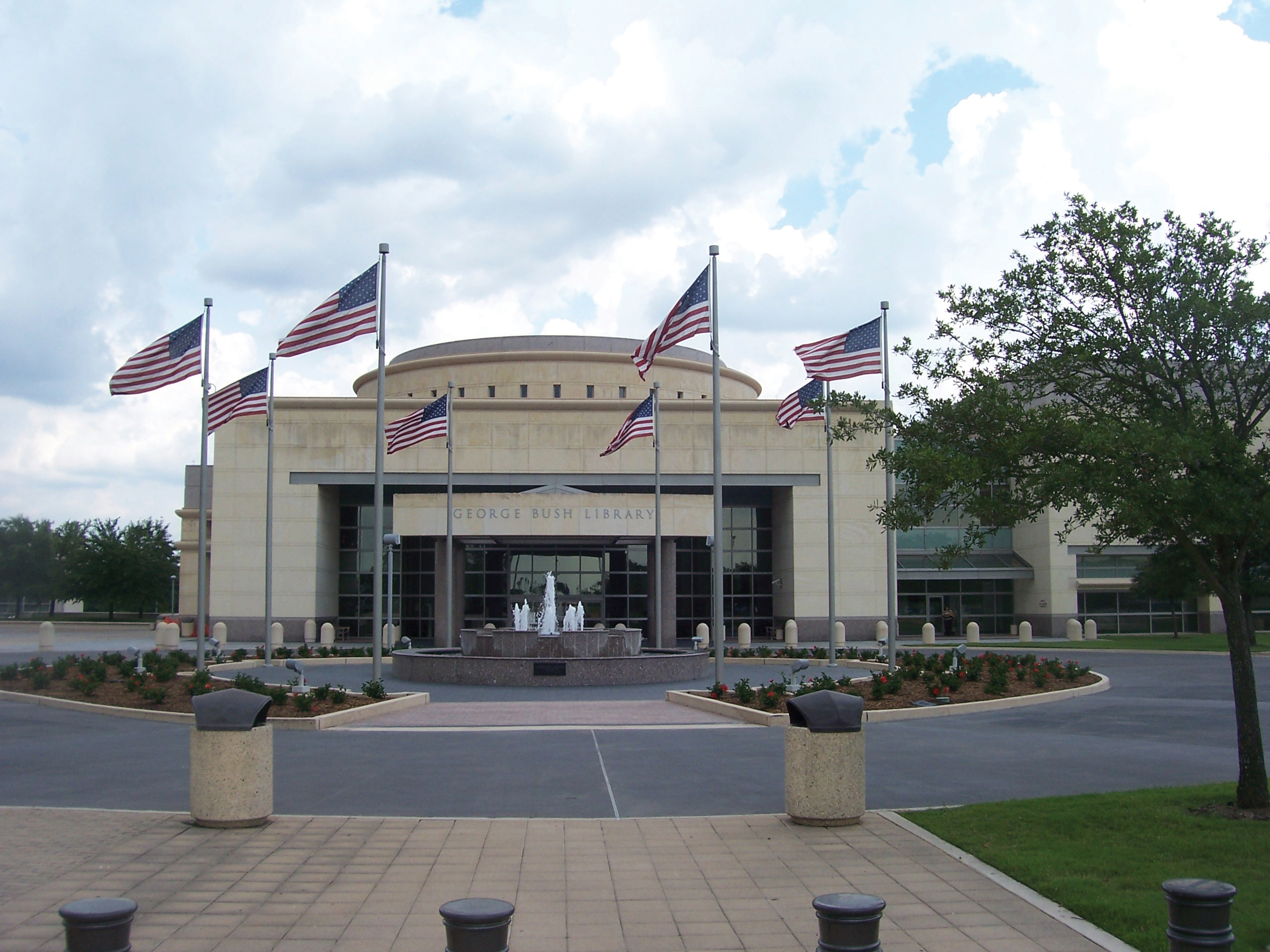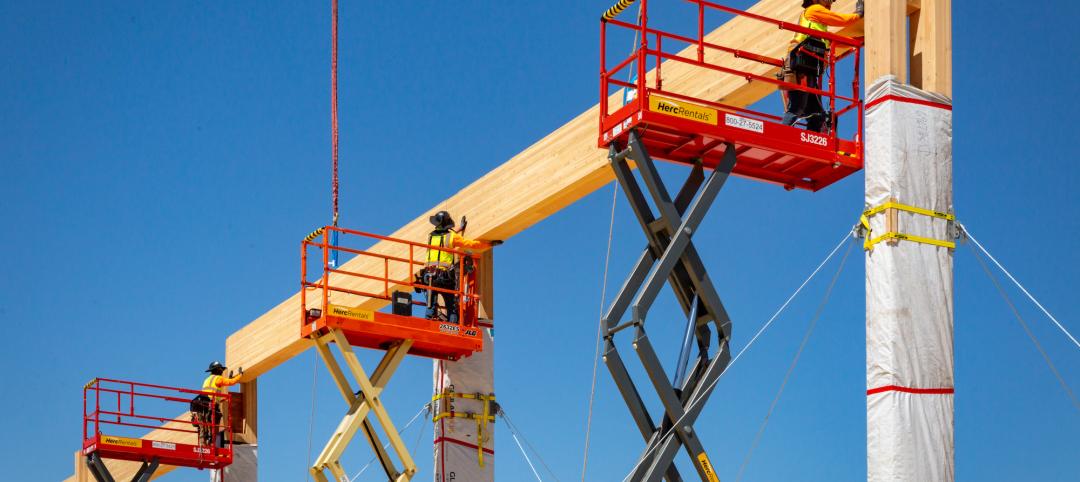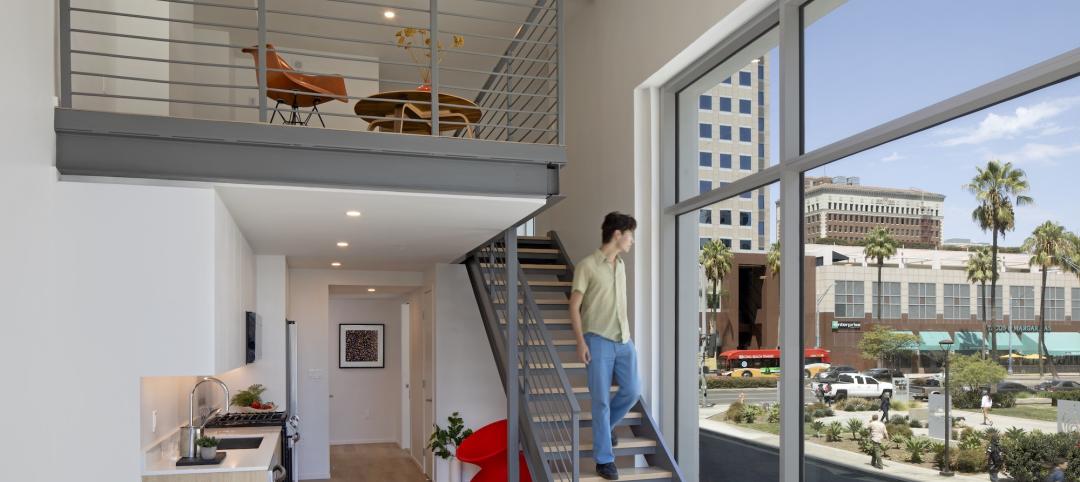Roof leaks can be a museum’s worst enemy, threatening water damage to artifacts and disturbing delicately controlled indoor environments. That’s why an $8.3 million renovation to the core exhibits at the George H.W. Bush Presidential Library and Museum in 2007 was done in parallel with fixing approximately 75,000-sf of the flat, spray-applied polyurethane foam (SPF) roof that had provided almost 10 years of service.
“We were redoing the core exhibit so I thought it was a good time to check the roof,” explains Robert Spacek, Facility Operations Specialist for the George H.W. Bush Presidential Library and Museum.
The original roof was a foam and silicone-coated system. Although SPF roofs can often last 20 years or more, and are renewable indefinitely with simple recoats every 10-15 years, this one was showing some wear and tear. As part of the renovation, there was talk of tearing off the existing roof and replacing it with another solution. This option, however, would be extremely expensive and time-consuming. Plus, the artifacts and records would have had to be moved and the building closed to the public during renovations.
“This particular roof was still in excellent shape and performing well. There was nothing wrong with the base foam roofing insulation,” explains John Austin, Vice President of Spray Polyurethane Foam and Coatings for F.W. Walton Inc., the contractor on the project. “But there were some leaks related to the rotunda and control joints in the windows, and membrane repairs were ineffective to prevent those roof leaks.”
Spacek made a request to the National Archives and Records Administration (NARA) for funding for the roofing project. The NARA architects were subsequently asked to research the cost of replacing the entire roof. After consulting with BASF technical experts, it was discovered that only certain parts needed minor repairs, so a tear-off and replacement could be avoided.
Once the project was approved, the bid went to Houston-based F.W. Walton, Inc. Having found the root of the problem, Austin used ELASTOSPRAY SPF from BASF to perform minor repairs on various parts of the existing roof, followed by a recoat of the entire roof to provide a consistent and fresh aesthetic appeal. This renewal would continue to deliver on the energy savings inherent in SPF roofing systems, prolong the life expectancy of the original roof and provide a quick installation with minimal disruption. All at a far reduced cost compared with a tear off and replacement. Plus, it would divert a lot of waste from landfills.
For more information, contact:
BASF Corporation
100 Park Avenue
Florham Park, NJ 07932
info@basfconstruction.us
construction.basf.us
And thanks to the decision to repair and recoat the original roof, the work didn’t inconvenience the public or expose artifacts to the elements.
“We didn’t have to change anything,” says Spacek, who adds that it was his first big job with this type of roofing system. “Things went really well. The contractor was very easy to get along with. In all honesty, I didn’t understand a lot about this stuff until I started this job. I am very pleased with the results. It has been a very satisfactory experience for me.” +
Related Stories
Mass Timber | Jan 27, 2023
How to set up your next mass timber construction project for success
XL Construction co-founder Dave Beck shares important preconstruction steps for designing and building mass timber buildings.
Sports and Recreational Facilities | Jan 26, 2023
Miami’s motorsport ‘country club’ to build sleek events center
Designed by renowned Italian design firm Pininfarina and with Revuelta as architect, The Event Campus at The Concours Club will be the first and only motorsport-based event campus located within minutes of a major metro area.
Student Housing | Jan 26, 2023
6 ways 'choice architecture' enhances student well-being in residence halls
The environments we build and inhabit shape our lives and the choices we make. NAC Architecture's Lauren Scranton shares six strategies for enhancing well-being in residence halls.
K-12 Schools | Jan 25, 2023
As gun incidents grow, schools have beefed up security significantly in recent years
Recently released federal data shows that U.S. schools have significantly raised security measures in recent years. About two-thirds of public schools now control access to school grounds—not just the building—up from about half in the 2017-18 school year.
AEC Tech Innovation | Jan 24, 2023
ConTech investment weathered last year’s shaky economy
Investment in construction technology (ConTech) hit $5.38 billion last year (less than a 1% falloff compared to 2021) from 228 deals, according to CEMEX Ventures’ estimates. The firm announced its top 50 construction technology startups of 2023.
Sports and Recreational Facilities | Jan 24, 2023
Nashville boasts the largest soccer-specific stadium in the U.S. and Canada
At 30,105 seats and 530,000 sf, GEODIS Park, which opened in 2022, is the largest soccer-specific stadium in the U.S. and Canada. Created by design firms Populous and HASTINGS in collaboration with the Metro Nashville Sports Authority, GEODIS Park serves as the home of the Nashville Soccer Club as well as a venue for performances and events.
Concrete | Jan 24, 2023
Researchers investigate ancient Roman concrete to make durable, lower carbon mortar
Researchers have turned to an ancient Roman concrete recipe to develop more durable concrete that lasts for centuries and can potentially reduce the carbon impact of the built environment.
Architects | Jan 23, 2023
PSMJ report: The fed’s wrecking ball is hitting the private construction sector
Inflation may be starting to show some signs of cooling, but the Fed isn’t backing down anytime soon and the impact is becoming more noticeable in the architecture, engineering, and construction (A/E/C) space. The overall A/E/C outlook continues a downward trend and this is driven largely by the freefall happening in key private-sector markets.
Multifamily Housing | Jan 23, 2023
Long Beach, Calif., office tower converted to market rate multifamily housing
A project to convert an underperforming mid-century office tower in Long Beach, Calif., created badly needed market rate housing with a significantly lowered carbon footprint. The adaptive reuse project, composed of 203,177 sf including parking, created 106 apartment units out of a Class B office building that had been vacant for about 10 years.
Hotel Facilities | Jan 23, 2023
U.S. hotel construction pipeline up 14% to close out 2022
At the end of 2022’s fourth quarter, the U.S. construction pipeline was up 14% by projects and 12% by rooms year-over-year, according to Lodging Econometrics.

















